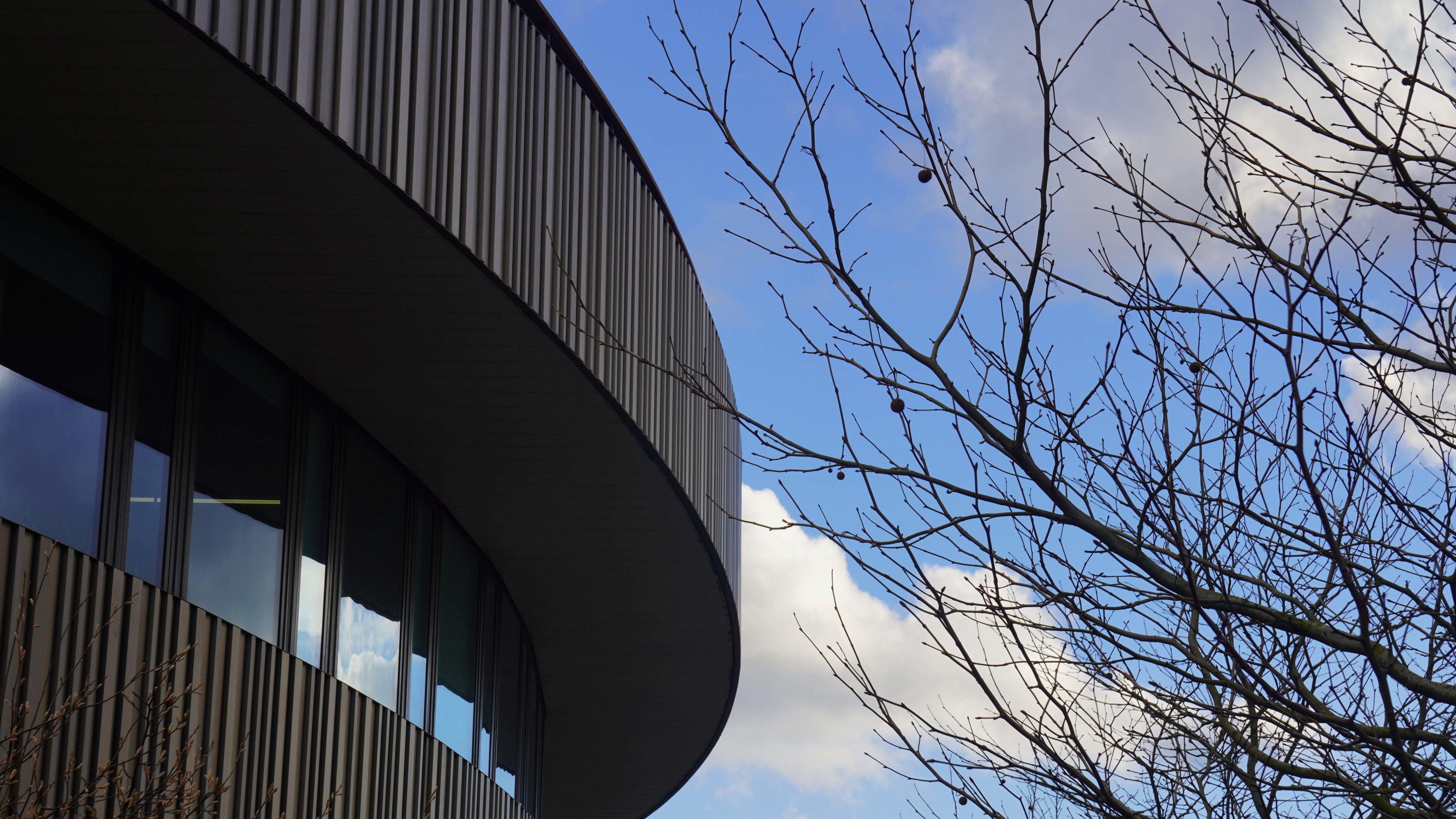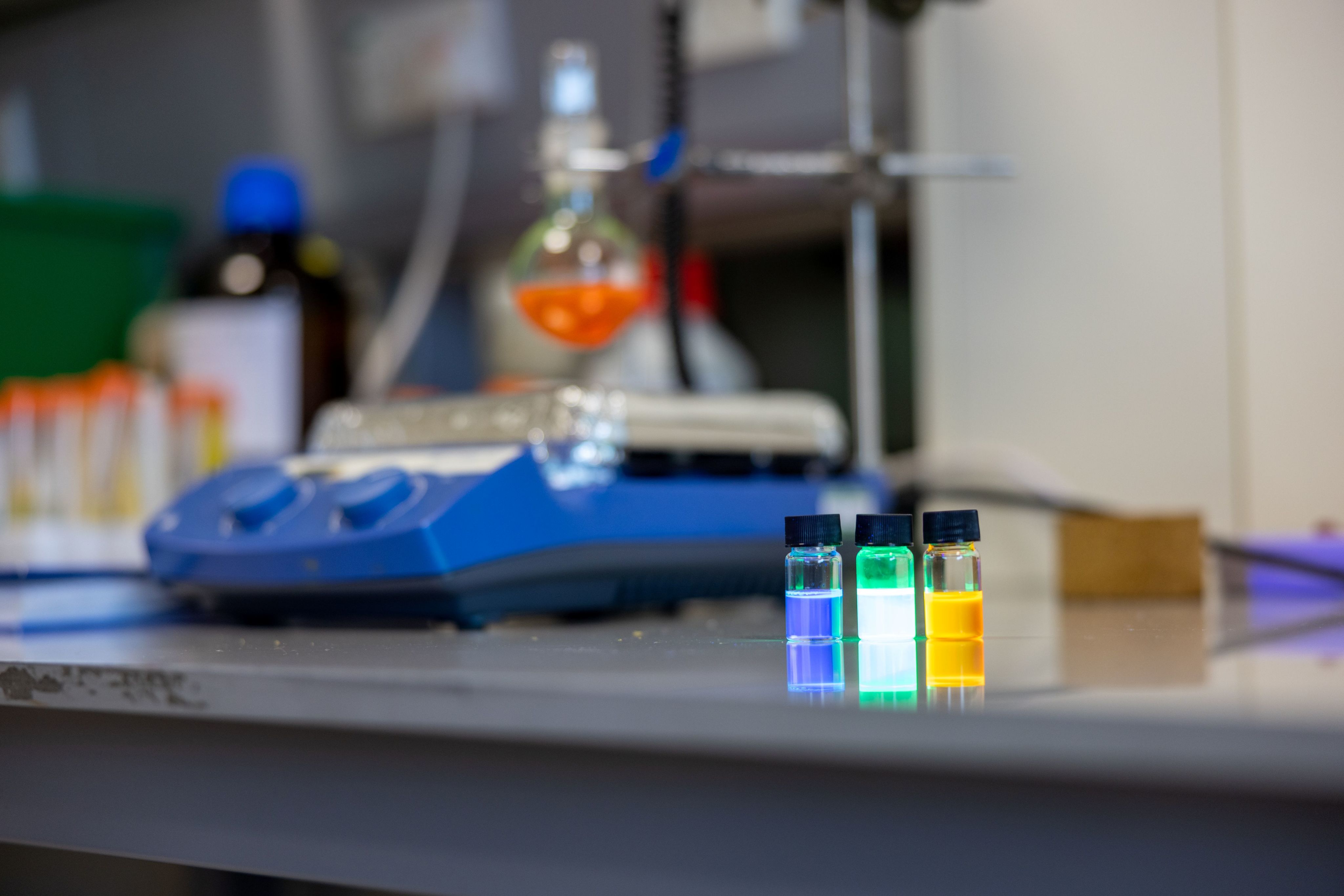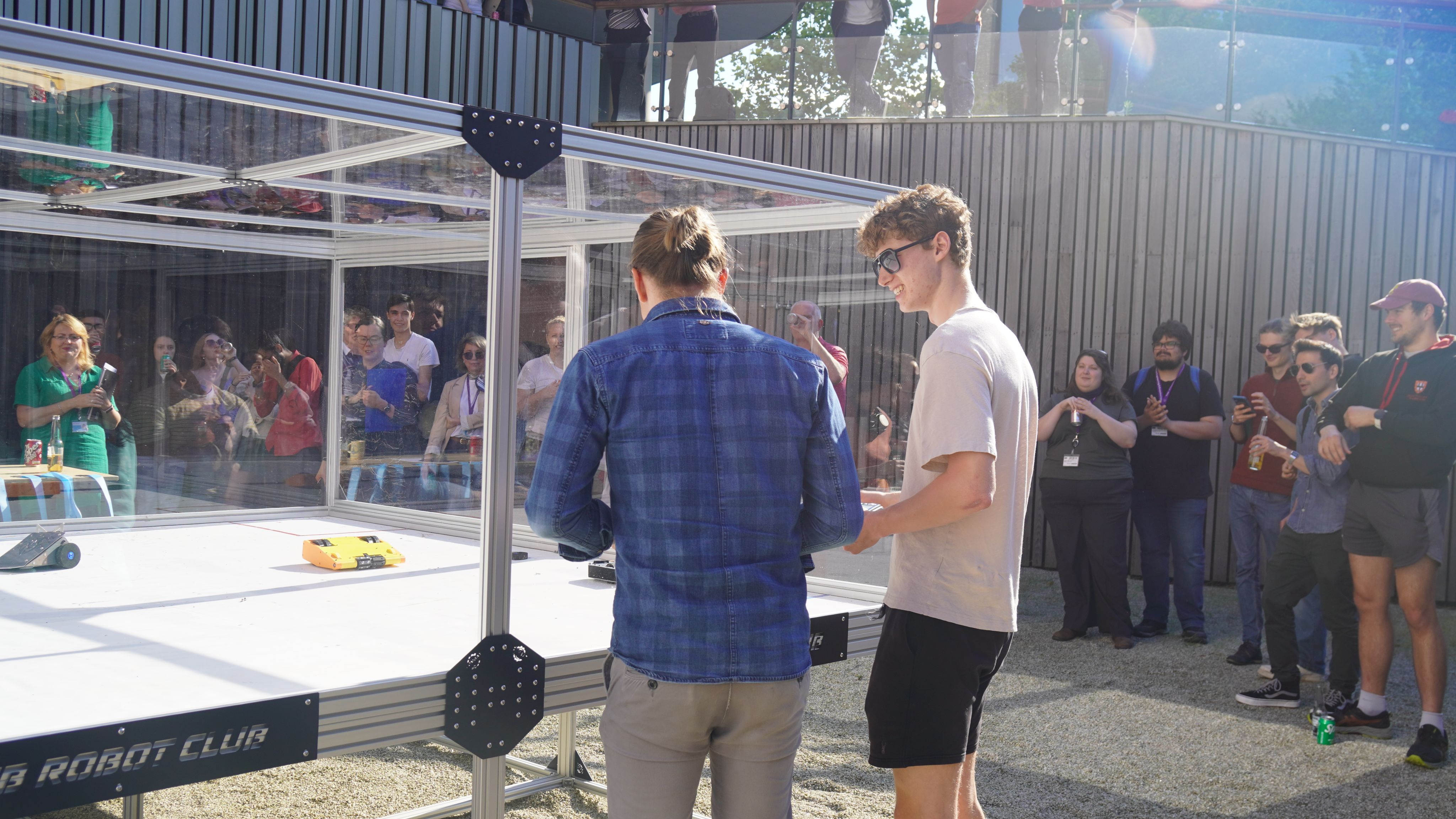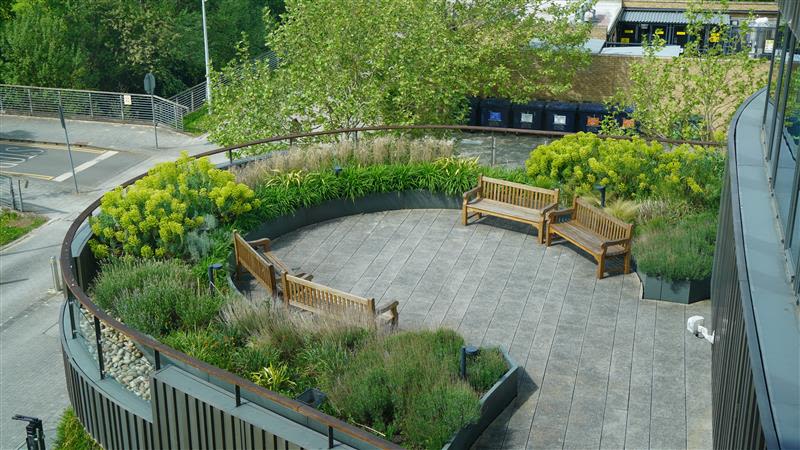CEB Newsletter

As exams begin today and we head into the final stretch of the academic year, I wanted to take a moment to reflect on what’s been a remarkable – if at times turbulent – year.
As I’ve mentioned before, we’re operating in a climate of growing pressure. Funding is tight, regulatory demands are increasing, and the University’s savings targets are making it harder to recruit and retain the people we need. These are real challenges, and we shouldn't shy away from talking about them – but they don’t define us.
Because, despite everything, CEB continues to thrive. And that’s largely thanks to the dedication, creativity and resilience of this community.
This summer marks the end of my fifth year as Head of Department, and I remain incredibly proud of what we have achieved together. We’re now ranked third in the QS World Rankings – behind only MIT and Stanford, both far larger institutions – which reflects the exceptional work happening across the department.
You continue to tackle urgent global challenges – from decarbonising energy and industry to developing new ways to diagnose and treat disease – and turning those ideas into real-world impact. With more than 40 spinouts to date, we’re one of the most entrepreneurial departments in Cambridge. Every one of us contributes to that success, and we should be proud of what we’ve built together.
We’ve also just completed the second year of the redesigned CEBT Tripos, which puts research and design thinking at the heart of undergraduate learning. Meanwhile, our outreach work continues to grow – this year’s Davidson Inventors Challenge was our biggest yet, with 150 schools taking part. The winning team proposed a solution to remove persistent chemicals from drinking water.
And there’s been no shortage of individual achievements too – some of which you can read more about below. PhD student Muhamad Hartono’s work on a urine-based lung cancer sensor earned national headlines and the Danckwerts-Pergamon prize for the year’s best chemical engineering thesis. Associate Professor Ewa Marek received the Pilkington Prize for excellence in teaching. And Professor Dame Lynn Gladden was appointed to the Council for Science and Technology, advising government on science policy.
None of this happens in isolation. We’re working in a world that’s shifting fast – from the rise of AI to increasingly complex political and economic pressures. But CEB has always been a place that adapts, that rises to meet change, and that continues to look outward. That spirit will be vital in the years ahead.
Thank you for everything you do to make this department what it is – and best of luck to all those sitting or supporting exams in the weeks ahead.
Warmest regards,
Clemens
Latest news

Nanodomains hold key to solar cells
A new study from StranksLab reveals how dynamic nanodomains in perovskite materials could be harnessed to boost the efficiency and stability of next-generation solar cells.
Low-cost genome sequencing funded
Major role for Dr Jenny Molloy in new global initiative to scale up affordable, open-source genome sequencing for real-time detection of infectious disease outbreaks.
Team celebrates LiFETIME award
A student-led spinout that began in the Sensors CDT Team Challenge has won the first Clare Hall Entrepreneurship Prize for its low-cost diagnostic technology.
Alumni spotlight: Fiona Macleod
Professor and alum Fiona Macleod (Selwyn 1979), returned to CEB last month to reflect on the enduring lessons of the Bhopal disaster and her career since graduating.
SUCCESS STORY
Top prize for lung cancer research
Danckwerts–Pergamon prize awarded to student developing urine test for early detection into lung cancer

Muhamad Hartono has been awarded the 2025 Danckwerts–Pergamon Prize, in recognition of his research into a simple, non-invasive test to help detect lung cancer.
The annual prize, awarded by the Department of Chemical Engineering and Biotechnology (CEB), celebrates the best PhD thesis in chemical engineering.
Muhamad’s thesis focuses on the development of nano-sensors to detect cellular senescence – cell behaviour that can occur in tissues during the early stages of cancer development. His work explores how these changes might be tracked through urine samples, offering a potential way to spot warning signs before symptoms appear.
“I was absolutely over the moon,” said Muhamad. “I was spending a quiet evening at home when I received an email from my supervisor, Ljiljana, congratulating me. That’s how I found out – I was completely taken by surprise!
“I remember my supervisor had mentioned nominating me a few months ago, which I already felt deeply honoured by, but I never expected to actually receive the award. It’s incredibly rewarding to see the years of research and writing recognised in this way.”
Muhamad originally came to Cambridge, Downing College, as a Gates Cambridge Scholar to study the MPhil in Biotechnology. “As a trained chemical engineer, I was looking for a way to move into the bio space, and this course offered the ideal bridge between disciplines,” he said. He had previously completed an MSc (Hons) in Chemical Engineering at Delft University of Technology in the Netherlands.
It was during the MPhil that he discovered the field that would shape his PhD and current research. “I took a nanotechnology module taught by Prof. Ljiljana Fruk, which really sparked my interest,” he said. “I was fascinated by the potential of nanotechnology in medicine, and that led me to pursue a PhD in her group also as a Gates scholar, focusing on biomedical applications – particularly cancer.”
His PhD was supervised by Fruk in the BioNano Engineering group, with input from Dr Daniel Muñoz-Espín in the Department of Oncology. Together, the collaboration brought nanotechnology and chemical engineering together with cancer biology.
“During my PhD, I was fortunate to collaborate with Dr Daniel Muñoz-Espín, who is an expert in lung cancer. That collaboration grew, and I’m now working in his lab as a postdoctoral research associate, continuing to explore novel approaches for early cancer detection,” he said.
“As an engineer stepping into the world of oncology and biology, the learning curve was steep but also enriching! I gained a whole new set of skills, and I’m especially grateful to my colleagues in the Fruk and Muñoz-Espín labs, whose support and expertise made that transition smooth and possible.”
The urine test, supported by Cancer Research UK, is part of wider research efforts in the department and beyond to create earlier, more accessible routes to cancer detection. His work was picked up by multiple national news outlets earlier this year, including The Guardian, Daily Mail, The Independent and The Sun.
Reflecting on the process of completing his thesis, Muhamad added: “The process of writing the thesis – while challenging – was a meaningful opportunity to bring together and reflect on the work I’ve done. I’m truly honoured that it’s been acknowledged like this.”
The Danckwerts–Pergamon Prize recognises research that is not only rigorous and original, but has the potential to make a lasting contribution to science and society. Muhamad’s work exemplifies CEB’s mission to be driven by curiosity, driving change – and shows how an idea first sparked in a classroom can grow into research with far-reaching clinical potential.
ROBOT CLUB NEWS
Meet the Robot Club competitors
As we start to countdown to this year's fun competition aimed at introducing core engineering skills to department members, we introduce you to the competitors preparing to line-up for the Veteran League.

“There are many fantastic skills that can be learned from designing and building fighting robots,” said Makerspace manager (and founder of CEB Robot Club) Josh Easy.
With the second annual Robot Club tournament just around the corner, we spoke to Josh about some of the transferable skills and knowledge that members of the club have gained through the process of building their challengers.
Makerspace manager Josh is working on Direwolf for the Veteran competition, having last year helped create crowd favourite from last year Timberwolf
Makerspace manager Josh is working on Direwolf for the Veteran competition, having last year helped create crowd favourite from last year Timberwolf
“Our members learn about Computer Aided Design (CAD), 3D printing, laser cutting, CNC machining, electrical circuit design and more,” Josh said. The participants take these skills beyond the bots.
“Whether its CAD, which is used across a huge number of engineering fields, or time management and collaboration, the hard and soft skills our members learn at Robot Club are applicable across disciplines.”
From developing real-world technical expertise to cultivating problem-solving abilities under pressure, CEB Robot Club is a unique opportunity to develop engineering skills that carry benefits far beyond the custom-built arena that will host the tournament later this month.
Josh summed it up best: “It’s not just about building robots, it’s about building confidence, creativity and a community of future innovators.”
The 2025 CEB Robot Club tournament takes place on Tuesday 17 June from 5:00pm onwards.
Accretion Disk will compete in the Veteran's League
Accretion Disk will compete in the Veteran's League
Major Danger does what it says on the tin. Or so the team will hope as they line up for the Veteran's League on 17 June.
Major Danger does what it says on the tin. Or so the team will hope as they line up for the Veteran's League on 17 June.
IT manager Jon is entering a familiar face with Dominion for this year. He struggled to get the complex robot working this year but is confident he can improve on his showing this year.
IT manager Jon is entering a familiar face with Dominion for this year. He struggled to get the complex robot working this year but is confident he can improve on his showing this year.
Suboptical is Muriel's entry for the Veteran tournament and is a successor to his fan favourite Bar Fight from last year.
Suboptical is Muriel's entry for the Veteran tournament and is a successor to his fan favourite Bar Fight from last year.
Welcome to our new starts
Please join us in welcoming the below to CEB.
- Aleix Pubill Rodriguez has joined Professor Laura Torrente Murciano's group as a Research Associate.
- Hendrik Scheulen is a visiting student, completing their Master's thesis within Professor Alexei Lapkin's Sustainable Reaction Engineering group.
- Žak Ruben Šinkovec has joined Professor Lapkin's group as a PhD student.
- Robert Petrie is completing a PhD in Earth Sciences and will be a visiting student with Professor Ljiljana Fruk's group.
- Rhea Agarwal is a visiting MPhil student from the Department of Engineering, joining Dr Shelly Singh-Gryzbon's group.
- Do Chun is a visiting postdoctoral Research Associate with Professor Sam Strank's group.
- Kleovoulos Kofonikolas is a visiting PhD student in Medical Science with Professor Ljiljana Fruk's group.
- Lizzy Maybury is starting today as our new HR administrative assistant.
Recent news from inside CEB is published on our intranet news and events pages and shared with staff and students via a weekly CEB Bulletin.
If you are not receiving this and would like to, please email a request to join the relevant mailing list: communications@ceb.cam.ac.uk
Please share any news, of personal academic successes and research papers with us. Send it all, we are curious creatures ourselves and whatever happens, we will enjoy reading and hearing about what you are up to.
Our motto in comms is: Omnia nobis (share it all).

CEB Newsletter
This email was sent to you because of your affiliation with the Department of Chemical Engineering and Biotechnology (CEB).
© 2025 Department of Chemical Engineering and Biotechnology, University of Cambridge
Communications Team | Philippa Fawcett Drive | Cambridge, CB3 0AS | UK

















